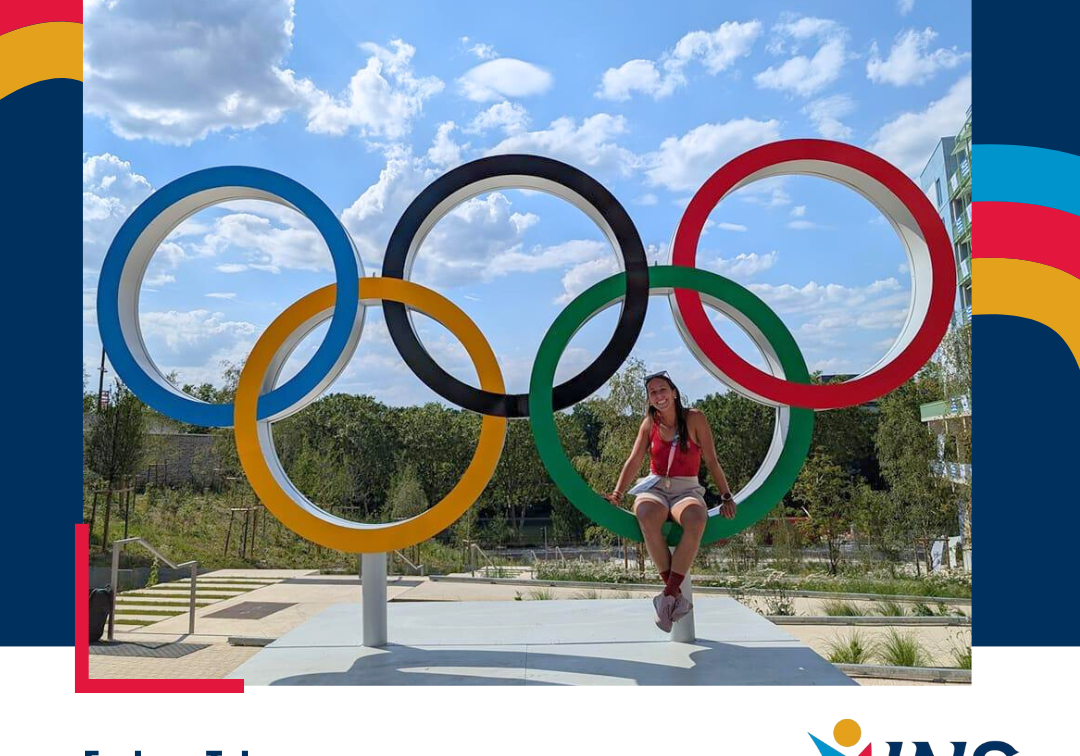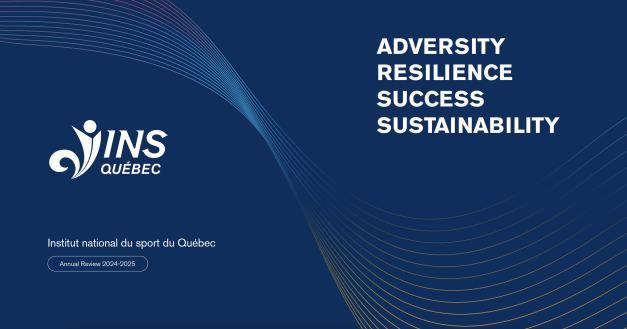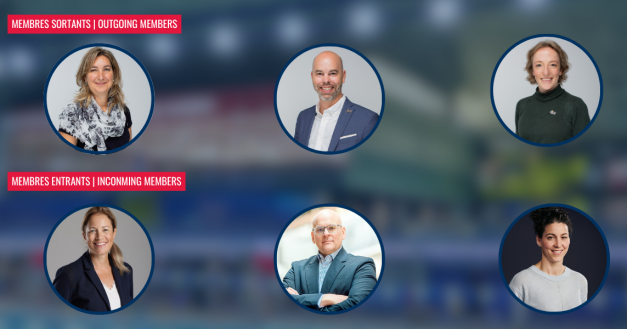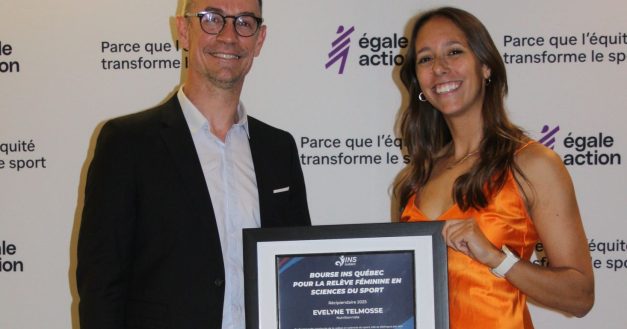Paris 2024 Olympic Games: Meet our experts

Evelyne Telmosse
Here’s a series of 4 articles featuring some of our 14 experts who will be at the Olympic Games in Paris or working remotely. For our fourth and final portrait, we had the pleasure of chatting with Evelyne Telmosse, Nutritionist and Sports Dietitian at INS Québec. Evelyne works primarily with Gymnastics Canada, Para-Natation Canada and Diving Canada, as well as accompanying a number of triathlon athletes. In this interview, Evelyne shares details of her essential role before and during the Olympic Games, her contributions to the success of athletes, and her enthusiasm for her first Olympic experience.
Q : When did you join the Institut? When did you start your profession? Which sports do you work with?
I joined the Institut in June 2021 as a sports nutritionist, while I was doing my master’s degree in physical activity science at the Université de Montréal. I began my profession in December 2020 as a nutritionist in a sports medicine clinic. I work mainly with Gymnastics Canada, Para-Natation Canada and Diving Canada. I also accompany several triathlon athletes.
Q : What’s your role before the Games?
As national team nutritionist, my role is to develop personalized strategic plans for each athlete, in preparation for the Olympic Games. Each athlete has specific goals, challenges and nutritional needs. What works for one may not work for another. At this level of competition, it’s essential to individualize our discussions and goals with each athlete to ensure optimal preparation for the Games.
I also work with the athletes to anticipate and manage the potential challenges they may encounter at the Games. For example, heat will be a significant factor in Paris. So we work to optimize hydration and develop cooling strategies to prevent heat stroke and dehydration, which can have a major impact on their performance.
Finally, I make sure to review the menus available at the preparatory camps as well as those offered at the Olympic Games. It’s crucial to ensure that the nutritional needs of each athlete are met, and that any special dietary requirements (gluten-free, vegetarian, vegan, etc.) are taken into account. The aim is to enable athletes to eat “as if in the comfort of home”, minimizing the unexpected so they can concentrate entirely on the competition.
Q : What’s your role at the Games?
During the Games, I wear two distinct hats. On the one hand, as nutritionist for the sports I work with daily at the Institut, my role is to ensure that athletes have everything they need for their travel, preparation, competition and recovery. I’m also responsible for providing reminders and follow-ups on individual strategies as needed, and of course, for providing support in the event of unforeseen circumstances.
My second role is that of chief nutritionist for the Canadian delegation to the Canadian Olympic Committee. This role, quite different from the first, involves direct involvement in the organization, planning and resolution of food-related issues for all our athletes representing Canada. I ensure that accessibility, supply and nutrition management are optimized. I’m also the main point of contact on-site in the Olympic Village for Canada’s nutritionists working with the various sports and athletes.
Q : How do you contribute to the athletes’ success?
An athlete’s success is the result of a combination of many factors. My contribution to an athlete’s success extends over many months, even years, and is very much behind the scenes. Without proper nutrition, the athlete’s well-being and desired training gains cannot be optimal.
Nutritionists contribute to success by optimizing performance and overall well-being through :
– Optimal health (nutritional balance, monitoring nutritional deficiencies)
– Developing individualized nutritional plans tailored to each athlete and his or her sport
– Development of accelerated recovery strategies
– Establishing specific hydration plans
– Preventing injuries and infections.
By optimizing all these aspects, the athlete is fully available, mentally and physically, to achieve the desired adaptations during training and perform to his or her full potential. And all this is achieved through close collaboration with the athlete, the integrated support team (physiotherapist, doctor, physical trainer, physiologist, biomechanist) and the coaches.
Q : Is this your first experience at the Olympic Games?
Yes, this will be my first Olympic Games experience. I’ve been to two Canada Games (2022-2023) and the Pan-American Games in 2023.
Q : What do you love most about your job?
The two things I like most are the feeling of making a difference for the athletes and the variety of my job. As they eat 5-6 times a day, nutrition has a direct impact on their well-being, health and performance.
In nutrition, there are so many ways to make a difference! Whether it’s by providing individual consultations, running group workshops, being present at training sessions and competitions, or conducting research projects for federations, the list goes on! Routine is not part of a sports nutritionist’s vocabulary, and there’s never a dull moment.


